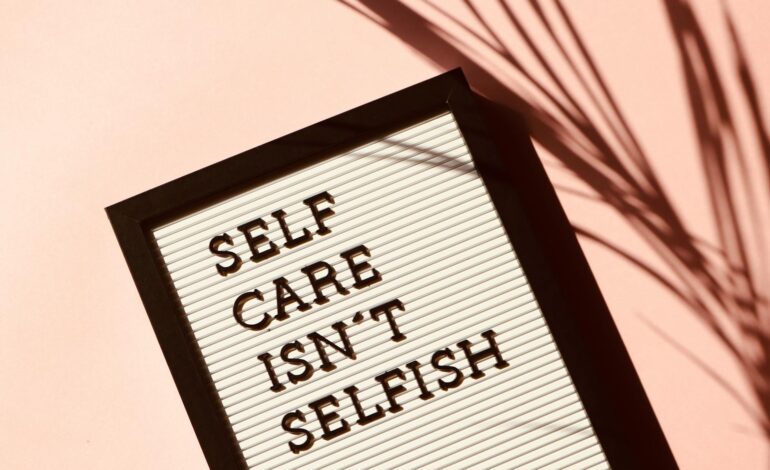Small Habits, Big Impact: Simple Changes for a Better Day

Small Habits That Make a Big Difference in Your Daily Life
We often chase grand goals – learning a new language, writing a novel, getting in peak physical shape. While these aspirations are fantastic and worthwhile, the journey to achieving them can feel overwhelming, leading many of us to abandon our efforts before we even truly begin. But what if I told you that significant change isn’t always about monumental effort? What if it’s built on a foundation of seemingly small habits?
The power of compounding is well-understood in finance – small investments, consistently made over time, yield substantial returns. The same principle applies to our daily lives. Tiny changes, repeated regularly, can create surprisingly large and positive transformations.
Understanding the Power of Habit Stacking
Before we dive into specific habits, let’s briefly discuss “habit stacking.” This is a technique where you link a new habit to an existing one. For example, “After I brush my teeth (existing habit), I will drink a glass of water (new habit).” This leverages the momentum of established routines making it significantly easier to integrate something new.
Habits with Impact: A Detailed Look
Let’s explore several small habits that can profoundly impact your daily life. We’ll look at their benefits and offer practical tips for implementing them consistently.
Making Your Bed – More Than Just Tidiness
Starting the day with a sense of accomplishment is key, and making your bed offers precisely that. It takes less than two minutes but provides a ripple effect throughout the rest of your day. Psychologically, it sets a tone of order and control. Knowing you’ve already completed one task can boost motivation for tackling others.

Practical Tip: Don’t overthink it! Just pull up the covers and straighten things out. If you find yourself skipping this habit, ask yourself why – is your bedding uncomfortable? Too many pillows in the way? Address the root cause to make it easier.
Hydration First Thing – Fueling Your Body & Mind
Dehydration can lead to fatigue, brain fog, and even headaches. Many of us wake up mildly dehydrated after several hours without water. Drinking a glass (or two!) of water first thing in the morning helps rehydrate your body, jumpstarts your metabolism, and improves cognitive function.
Practical Tip: Keep a glass or bottle of water on your nightstand so it’s readily available when you wake up. Consider adding lemon or cucumber for extra flavor if plain water isn’t appealing.
The 15-Minute Tidy – Decluttering Your Space, Clearing Your Mind
Clutter is a silent stressor. A messy environment can lead to feelings of overwhelm and anxiety. Dedicating just 15 minutes each day to tidying up—whether it’s putting away dishes, folding laundry, or organizing your workspace—can make a huge difference.
Practical Tip: Don’t try to tackle everything at once! Focus on one area – a corner of the room, a single drawer. Set a timer for 15 minutes and work until it goes off. You’ll be surprised how much you can accomplish in that short time.
Brief Breathing Exercises – Calming Your Nervous System
Stress is pervasive in modern life, and our nervous systems often operate in a state of chronic tension. Even five minutes of mindful breathing can activate the parasympathetic nervous system (the “rest and digest” response), promoting relaxation and reducing anxiety.
Practical Tip: There are countless guided meditation apps available, but you don’t need them! Simply find a comfortable position, close your eyes, and focus on your breath. Inhale deeply through your nose, exhale slowly through your mouth. Repeat for 5 minutes.
Gratitude Journaling – Shifting Your Perspective
Cultivating gratitude shifts your focus from what you lack to what you have. Taking a few moments each day to write down three things you’re grateful for can improve mood, reduce stress, and increase overall well-being.
Practical Tip: Keep a small notebook or use a journaling app. It doesn’t need to be lengthy; just a sentence or two for each item is enough. Do it first thing in the morning or right before bed.
Reading (Even Just A Few Pages) – Expanding Your Mind
Reading stimulates your brain, expands your vocabulary, and exposes you to new ideas. Just 15-20 minutes of reading a day can have a significant impact on your knowledge and understanding of the world.
Practical Tip: Carry a book with you so you can read during commutes or waiting periods. Consider audiobooks if you find it hard to sit down and read.
Consistency is Key – Building Habits That Last
The most crucial element of all these habits isn’t the habit itself, but consistency. Don’t beat yourself up if you miss a day; just get back on track as soon as possible. Remember, small slip-ups are normal. The goal is to build sustainable routines that become an integral part of your daily life.
Tips for Consistency:
- Start Small: Don’t try to implement all these habits at once. Choose one or two and focus on mastering them before adding more.
- Make it Easy: Reduce friction by making the habit as convenient as possible.
- Accountability: Tell a friend or family member about your goals for extra motivation.
- Track Your Progress: Seeing your progress can be incredibly motivating. Use a journal, app, or spreadsheet to track your successes.
By incorporating these small habits into your daily routine, you’re not just making minor adjustments; you’re investing in yourself and creating a foundation for long-term positive change. Remember, the journey of a thousand miles begins with a single step – or in this case, a made bed, a glass of water, and a few minutes dedicated to self-care.



